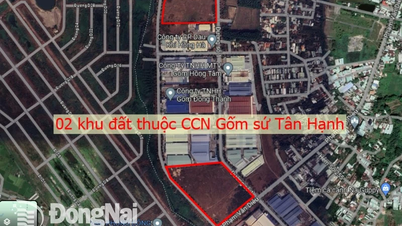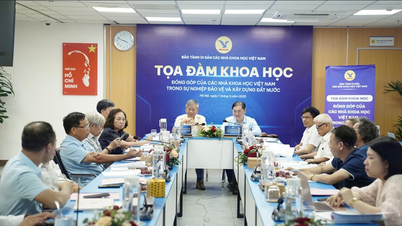The tax industry is facing a period of strong transformation thanks to the application of digital technology . Accordingly, all activities from tax declaration, tax payment to the issuance of electronic invoices and financial reporting are all being effectively digitized step by step. This not only helps to minimize fraud and loss of state budget revenue but also contributes to building a transparent tax environment, creating favorable conditions for taxpayers.
Currently, Vietnam has over 5.2 million individual business households, contributing a significant part to the country's gross domestic product (GDP). However, they often encounter difficulties in complying with accounting and tax regulations. The main reasons are limitations in financial resources as well as a shortage of specialized personnel in the field of accounting.
These challenges have prompted the tax industry to collaborate with technology companies to develop and provide appropriate digital solutions, such as accounting software, tax filing tools, e-invoicing systems and financial reporting. This simplifies the process of tax compliance while ensuring accuracy, timeliness and legal compliance.
 |
| Tax officers check compliance with regulations on invoices and taxes in Buon Ma Thuot City. Photo: Minh Thong |
The development of e-invoices is a clear demonstration of the effectiveness of digital transformation in the tax sector. According to the General Department of Taxation, by the end of November 2024, tax authorities had processed about 11 billion e-invoices, including 2.68 billion invoices with codes and more than 7.22 billion invoices without codes. In particular, the deployment of e-invoices generated from cash registers has made significant progress, with 92,080 businesses registering to use them by the end of 2024, 2.3 times higher than in 2023.
The participation of domestic technology enterprises is a key factor in promoting digital transformation of the tax sector. In recent years, these companies have invested heavily in researching and developing technological solutions to support both tax authorities and taxpayers in fulfilling their legal obligations quickly and effectively.
MISA Joint Stock Company is one of the pioneers, with the mTax service designed to support businesses in declaring and paying taxes directly. Accordingly, this service is directly integrated with MISA's accounting system, creating a comprehensive ecosystem that simplifies the tax process. With a friendly interface and reasonable costs, MISA has supported thousands of business households and small businesses in complying with tax regulations.
 |
| Lak - Krong Bong inter-district tax team supports business households in installing electronic tax system. Photo: Minh Thong |
In addition to MISA, many other enterprises such as Effect, Fast, Viettel Solutions... have also launched innovative and unique technology solutions to serve the business households and small enterprises. These solutions not only help improve tax management efficiency but also promote sustainable development of enterprises in the context of increasingly fierce competition today.
Close cooperation between tax authorities and technology companies is a core factor to ensure the success of the digital transformation process in the tax industry. Modern technology solutions will create breakthroughs, making tax collection more convenient, faster and more transparent.
Notably, from June 1, 2025, Decree No. 70/2025/ND-CP will require business households and individuals with revenue of VND 1 billion or more to use electronic invoices generated from cash registers that are directly connected to tax authority data. Therefore, it is necessary for technology companies to develop software to support the use of cash registers that integrate the function of issuing electronic invoices and connecting data to the tax system. User-friendly solutions at reasonable costs will help business households convert more smoothly, minimize errors in declaration as well as comply with legal regulations.
In the coming time, the tax sector plans to continue upgrading its management tools by leveraging cloud computing, big data and artificial intelligence. These technologies will support better monitoring, analysis and forecasting, contributing to building a modern, fair and taxpayer-friendly tax system. These plans are expected to help Vietnam affirm its position in tax management for cross-border digital business activities.
More than just a trend, digital transformation of the tax sector has become a key driving force in the roadmap to modernize national finance. With the strong support of technology enterprises, difficulties and barriers in administrative procedures are gradually being removed, contributing to the construction of a modern and fair tax system.
Source: https://baodaklak.vn/kinh-te/202506/chuyen-doi-so-cu-hich-cho-nganh-thue-chuyen-minh-699035b/
















































































![[OCOP REVIEW] Tu Duyen Syrup - The essence of herbs from the mountains and forests of Nhu Thanh](https://vphoto.vietnam.vn/thumb/402x226/vietnam/resource/IMAGE/2025/6/5/58ca32fce4ec44039e444fbfae7e75ec)







Comment (0)